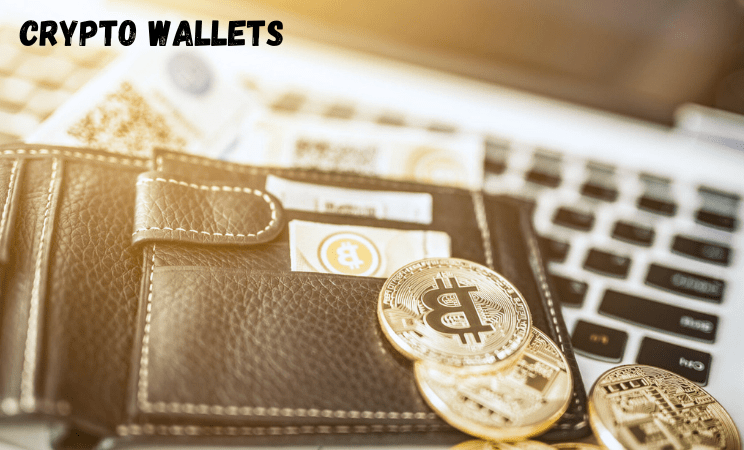Crypto wallets: Optimal Balancing Security and Convenience

In the ever-evolving landscape of cryptocurrency, one of the most crucial decisions a user must make is selecting the right crypto wallets. With the myriad of options available, ranging from hardware wallets to mobile apps, finding the perfect balance between security and convenience is paramount. In this comprehensive guide, we will explore the various types of wallets, and their features, and provide insights to help you make an informed decision.
Understanding the Basics: Wallet Types
Wallets, in the context of cryptocurrency, come in various types. Hardware wallets, like Ledger or Trezor, are physical devices that store private keys offline, providing enhanced security. Software wallets, on the other hand, exist as applications on computers or mobile devices, offering convenience but with varying levels of security. Choosing the right wallet type depends on individual preferences, balancing security and accessibility in the complex landscape of digital assets.
Hardware Wallets: Fortresses of Security
Hardware wallets are often regarded as the pinnacle of security in the crypto wallet world. These physical devices store private keys offline, making them immune to online hacking attempts. Commonly shaped like USB drives, they are disconnected from the internet when not in use, minimizing the risk of unauthorized access. However, their inconvenience lies in their physicality, as users must carry the device to make transactions.
Software Wallets: Striking a Balance
Software wallets come in various forms, including desktop, mobile, and online options. While they offer more convenience than hardware wallets, they are susceptible to hacking if not properly secured. Desktop wallets are installed on a computer, mobile wallets on smartphones, and online wallets are accessible through a web browser. The convenience they offer makes them popular among users, but the security measures taken by each platform vary.
Factors Influencing the Choice: Security
In the realm of digital choices, striking a delicate balance between security and convenience is paramount. Users often face the challenge of navigating a landscape where heightened security measures can potentially impede the seamless flow of user-friendly experiences. As technology advances, individuals must make informed decisions, considering both the necessity of safeguarding sensitive information and the desire for user-friendly interactions. This delicate equilibrium ensures that personal data remains secure without sacrificing the ease and efficiency that modern technologies strive to deliver.
Private Key Control: The Heart of Security
The essence of security in cryptocurrency lies in the control of private keys. Hardware wallets and paper wallets excel in this aspect, keeping the keys offline and secure from digital threats. Software wallets, especially online ones, can be vulnerable to hacking attempts. Understanding how each wallet type manages and secures private keys is essential for making an informed decision.
Reputation and Development Team: Trust Matters
Investigating the reputation of a wallet provider and the development team behind it is crucial. Established and reputable teams are more likely to prioritize security updates, bug fixes, and overall wallet maintenance. Check online forums, reviews, and community discussions to gauge the credibility and reliability of the wallet provider.
Open Source vs. Closed Source: Transparency is Key
Open-source wallets allow users to review the code, ensuring transparency and fostering trust. Closed-source wallets, while not inherently less secure, may raise concerns about hidden vulnerabilities. If security is a top priority, opting for an open-source wallet provides an added layer of assurance.
Factors Influencing the Choice: Convenience
Convenience is a pivotal factor influencing choices in various aspects of life. In the realm of consumer behavior, the convenience of accessing products or services plays a crucial role. Whether it’s the proximity of a store, user-friendly online interfaces, or efficient delivery options, individuals are inclined to opt for options that align with their preferences for ease and accessibility. This preference extends beyond commerce to other domains such as transportation, where individuals may choose modes that offer the most convenient routes and schedules. Ultimately, the quest for convenience significantly shapes decision-making across diverse contexts, reflecting a fundamental aspect of human behavior.
User Interface and Experience: Intuitive Navigation
The user interface and experience play a significant role in the convenience of a wallet. A well-designed, intuitive interface can make transactions and wallet management straightforward. Consider the user-friendliness of the wallet, especially if you are new to the crypto space.
Mobile Accessibility: Transactions on the Go
For users who prefer the convenience of managing their crypto wallet assets on the go, mobile wallets offer a practical solution. However, it’s essential to balance accessibility with security. Ensure that the mobile wallet of your choice has robust security features and is regularly updated.
Integration with Exchanges and DApps: Seamless Interactions
Some wallets offer integration with cryptocurrency exchanges and decentralized applications (DApps). This feature can streamline the process of trading and interacting with various blockchain-based services. Check whether your preferred wallet supports the platforms and services you intend to use.
Backup and Recovery Options: Preparedness for the Unexpected
Consider the backup and recovery options provided by the wallet. A secure and easily accessible backup mechanism is crucial in case of device loss, damage, or failure. Some wallets offer seed phrases or recovery keys that can be used to restore access to funds.
Making an Informed Decision: Balancing Security and Convenience
In the realm of digital choices, striking a delicate balance between security and convenience is paramount. Users often face the challenge of navigating a landscape where heightened security measures can potentially impede the seamless flow of user-friendly experiences. As technology advances, individuals must make informed decisions, considering both the necessity of safeguarding sensitive information and the desire for user-friendly interactions. This delicate equilibrium ensures that personal data remains secure without sacrificing the ease and efficiency that modern technologies strive to deliver.
Assessing Individual Needs
The ideal wallet varies based on individual needs and preferences. If security is paramount, hardware wallets or paper wallets may be the best choice. For those who prioritize convenience and frequent transactions, a well-secured software wallet might be more suitable.
Diversification for Enhanced Security
Diversification is a strategy not only for your investment portfolio but also for your crypto wallets. Using a combination of hardware, software, and paper wallets can add an extra layer of security. Distributing your assets across different wallets reduces the risk of a single point of failure compromising your entire portfolio.
Regularly Updating Security Measures
Regardless of the wallet type chosen, regularly updating security measures is essential. Keep the wallet software, firmware, and any associated apps up to date. Stay informed about security best practices and be vigilant against phishing attempts or suspicious activities.
Community Feedback and Reviews
Leverage the collective wisdom of the crypto wallet community by researching feedback and reviews. Real-world experiences shared by other users can provide valuable insights into the strengths and weaknesses of a particular wallet. Consider both positive and negative feedback to make a well-rounded evaluation.
Conclusion
The quest for the perfect crypto wallets involves a delicate dance between security and convenience. Recognizing the diverse needs of users, it becomes evident that there is no universal solution. Whether opting for the robust fortifications of a hardware wallet or the nimble accessibility of a software wallet, the key lies in informed decision-making. By prioritizing personal preferences, staying vigilant with security practices, and embracing diversification, users can navigate the dynamic crypto wallet landscape with confidence. In this ever-evolving realm, the right choice of a crypto wallet becomes not just a tool but a strategic ally in securing and managing digital assets.
FAQs
Why should I use a hardware wallet, and what does it entail?
A hardware wallet is a physical device that securely stores your cryptocurrency offline, providing unparalleled protection against online threats.
Are software wallets safe for everyday transactions?
Yes, if chosen wisely. Use reputable software wallets with strong security features and keep them updated to safeguard your assets during daily transactions.
How do I secure my private keys?
Protect private keys like a treasure. Choose a crypto wallets with robust encryption, enable two-factor authentication, and store backups securely to prevent unauthorized access.
Can I use multiple wallets for added security?
Absolutely. Diversifying across hardware, software, and paper wallets enhances security. It minimizes the risk of a single point of failure compromising your entire crypto wallet portfolio.
What’s the importance of regularly updating wallet security measures?
Regular updates ensure your wallet stays resilient against evolving threats. Keep software, firmware, and apps up to date to maintain optimal security for your crypto wallet assets.



